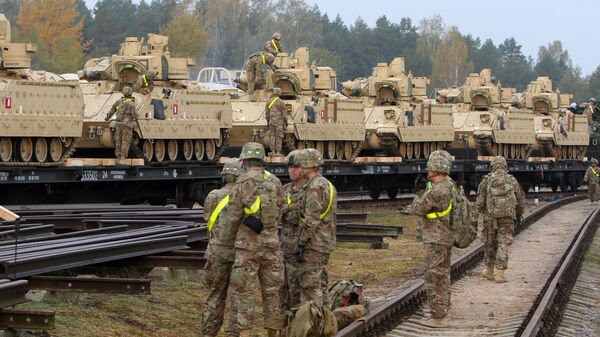A different calculation, however, by the Stockholm International Peace Research Institute (SIPRI), returned a much larger number, some $610 billion in US military expenditures over the course of a single year. SIPRI's method of calculation found that the US spends as much as the next seven nations combined, with Japan, at number nine, making the difference.
Despite that Obama used the budget figure to mark the strength of the US military and fend off speculation that America was "getting weaker," Politifact pointed out that military spending in fact shrank during Obama's Presidency. Since 2011, military expenses dropped for four years in a row, by a total of 15 percent. The report outlined two primary reasons for this: one being the partial withdrawal of US troops from Afghanistan and Iraq, and the second a result of sequestration, the automatic, across-the-board cuts originally designed to force bipartisan negotiations in Congress.
"We have to start winning wars again," the New York times cited Trump declaring. "When I was young, in high school and college," the President stated, "people used to say we never lost a war. We need to win or don't fight it all. It's a mess like you have never seen before."
But to win a war, as it has been opined, one must start a war. Is Trump, or are members of his cabinet, planning on waging war with someone? Speculation is rampant.
"Mr Trump's proposal would return the US closer to wartime spending," the BBC article said.
Between malfunctioning ships and planes, and a barely-effective bombing campaign in Syria prior to 2015, will a mere increase in cash solve the problems that riddle the vast enterprise of the US military?
According to Office of Management and Budget director Mick Mulvaney, the White House pledged to have a budget for Congress to examine by March 16, with a final budget completed by the "first part of May."




